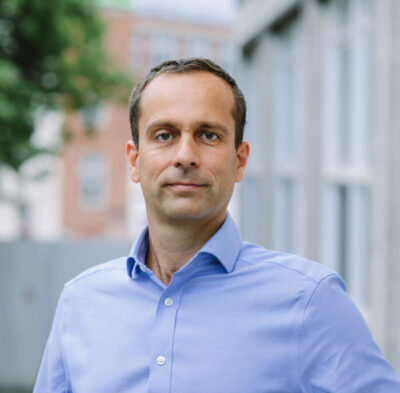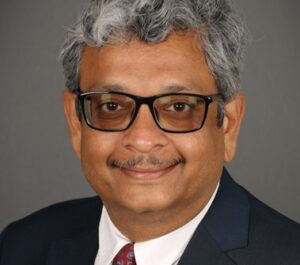
Surgical Technologies theme’s vision is to improve surgical diagnostics using wearable and immersive technology for remote patient post-surgery monitoring, improve surgical performance using robotic magnetic flexible instruments and use biological scaffolds to improve outcomes in several musculoskeletal conditions.
Overview
The Surgical Technologies theme focuses on bringing together research and technology to solve unmet clinical needs and advance surgical care.
These include integration of diagnostic techniques and treatment approaches with robotic surgical systems, and using immersive technologies to improve patient information and clinical performance.
We also examine the use of nanotechnology for improved guidance during surgeries and to better tailor operations to an individual’s needs.
The theme also examines new strategies and smart materials/devices to improve outcomes following joint replacement surgery.
In the UK:
- There are over 5M surgical admissions each year in the NHS, a 30% increase over the last decade
- On average, every person will experience 5 surgical episodes during their lifetime
- Postoperative complications are common in surgery with rates as high as 30% in some patient groups
- Of the 850,000 new fractures treated each year the overall incidence of long bone non-union has been estimated to range between 5-10%. Non-union occurs when a bone fails to heal following a fracture

Theme Lead: Prof David Jayne
WS1: Precision and personalised surgery
WS2: Enhanced healing, limiting disability, and improving outcomes

Lead: Prof Pietro Valdastri
Advanced robotics enabling surgical precision (General Surgery and Neurosurgery)
Lead: Professor Pietro Valdastri
We aim to take robotic surgery to the next level to harnesses the true potential of robotic assistance that increases the clinical utility and benefit. Board sensing technologies (ultrasound, terahertz, optical spectroscopy etc.) will be incorporated to provide microscopic and molecular imaging capability. This will then be combined with AI machine learning to develop diagnostic signatures to differentiate between normal and abnormal tissue.
Precision surgical oncological
Leads: Professor Steve Evans & Professor David Jayne
Exploring the use of multi-functional particles combining radiological imaging capability with diagnostic and therapeutic efficacy.
Enhanced preparation for surgery
Project Leads: Professor Ryan Mathew, Professor Faisal Mushtaq & Professor Mark Mon Williams
Working with Leeds Centre of Immersive Technologies to evaluate the latest virtual and mixed reality technologies for use in enhanced patient consent for operation, augmenting surgical training, and planning complex surgical procedures.

Lead: Prof Hemant Pandit
Orthopaedic
Leads: Professor Hemant Pandit & Professor Peter Giannoudis
Improvement of patient functional outcomes by tissue preserving interventions through patient device stratification
Combining in vitro natural tissue stimulators and computational modelling methods with patient data, we will identify how clinically measurable patient variables affect short-term device performance.
Improvement of Bone healing with implantation of mesenchymal stem cells
Validating and implementing surrogate measures to predict clinical outcomes using mesenchymal stem cells for bone restoration procedures.
Management of fragility fractures using physiologically engineered bone
Evaluation of integration of physiologically engineered bone and its impact on clinical outcomes using validated biomarkers, cross-sectional imaging and physiological parameters.
Prevention and treatment (open fractures, acute and chronic infections)
Optimisation and potential clinical application of a unique biocompatible matrix material with antimicrobial properties to treat severe bone injuries.
The role of functional alignment in the improvement of outcomes after THR & TKR
Assessment of the effects of surgical alignment on early functional outcomes in patients undergoing hip and knee replacement. Assessment will be via a combination of computational simulation and in vitro simulator testing, utilising clinical imaging and retrieval data for validation.
Pre-op 3D CT help planning to aid operative management of peri-prosthetic fractures
Using 3D CT offered via Sectra, we intend to enhance pre-op planning and provide necessary information to the operating surgeon about fracture personality, reducibility, and stability of the primary implant.
Vascular
Lead: Assistant Professor David Russell
Diabetic foot ulcers
Identifying patients at risk of diabetic foot ulcers in vascular surgery, and reducing the burden on current healthcare resources, is essential.
The annual cost of wound care to the NHS is £8.3 billion with £5.6 billion consumed by the 30% of wounds that are hard to heal, including diabetic foot ulcer.
Earlier diagnosis, optimised treatment, and prevention of recurrence will reduce the cost of care, decrease the risk of amputation, and improve patient quality of life.
Improve surgical safety
Working in partnership with industry leaders to develop remote patient monitoring platforms to improve surgical care and decision making in general, vascular and orthopaedic surgery.
Earlier detection of brain tumours
Working with colleagues in Computer Sciences and AI to investigate behavioural AI using read and spontaneous speech, with or without written language, to detect subclinical changes as a trigger for cranial imaging in neurosurgery.
